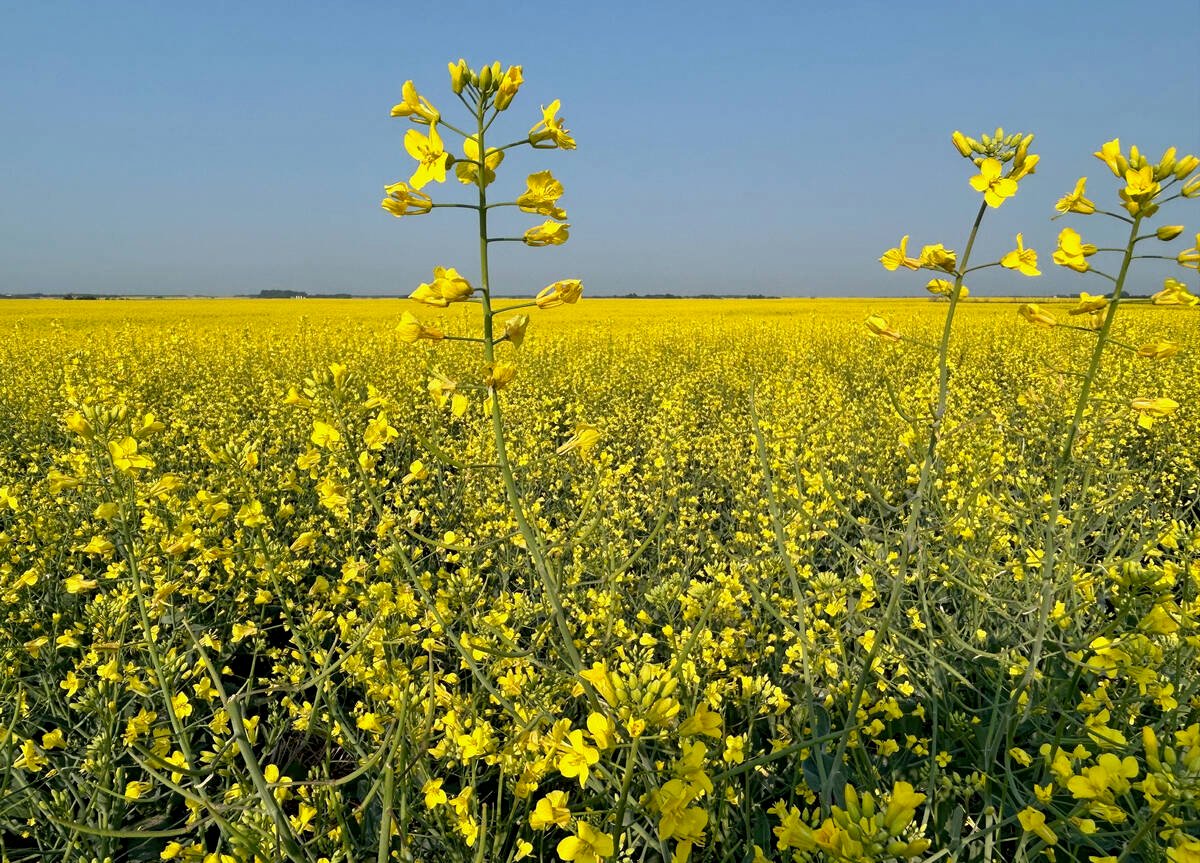RICHMOND, B.C. – With the chugging of a loader starting at 7:30 a.m., workers slosh waist-deep through flooded bogs getting this year’s cranberry harvest in.
Bruce May recently watched up to 45 workers harvest his 140 acres of colorful crop.
The land is flooded with water from the Fraser River. Then workers churn up the water, knocking berries from shrubs and encouraging them to float to the top.
The berries are guided towards conveyor belts, lifted to trucks, then taken for processing in Richmond. They are shipped to Washington state for freezing. In two weeks, the harvest will be complete.
Read Also

Record canola harvest expected
Anecdotal reports from agronomists, crop production advisors, landowners and grain industry reps, combined with provincial reports, indicates that canola yields could break the yield record set in 2016
About 95 percent of the berries are sold to the cranberry co-operative Ocean Spray, with the remainder sold to Lucerne and marketed through Safeway.
May and 49 other cranberry farmers in B.C. are expected to harvest more than 2,800 acres of berries this year. The province produces 95 percent of Canadian cranberry production.
The B.C. average is nine tonnes of cranberries per acre, but May expected a better crop than average this year. He and others are expecting to receive about $53 to $67, plus incentives, per 45-kg barrel of cranberries.
However, May said he and other growers are still waiting to be paid for the 1993 crop and part of the 1992 crop as well. The co-op retains the berries and farmers are paid as the crop is sold.
Cranberry producers need patience to keep in business. Mary-Margaret Gaye, the provincial blueberry and cranberry specialist for B.C.’s ministry of agriculture, fisheries and food, said it can take up to eight years before a field reaches full production.
Start-up costs are high
“It’s a very expensive crop to establish,” she said, adding it could cost $35,000 to $40,000 per acre.
Ocean Spray and Lucerne help provide research and development needed to market the berries. Agriculture Canada has also assisted with research, particularly in the area of pest management.
One of the biggest challenges for the growers is weed control, Gaye said. A lot of it is done by hand because very few herbicides are registered in Canada for the crop.
















